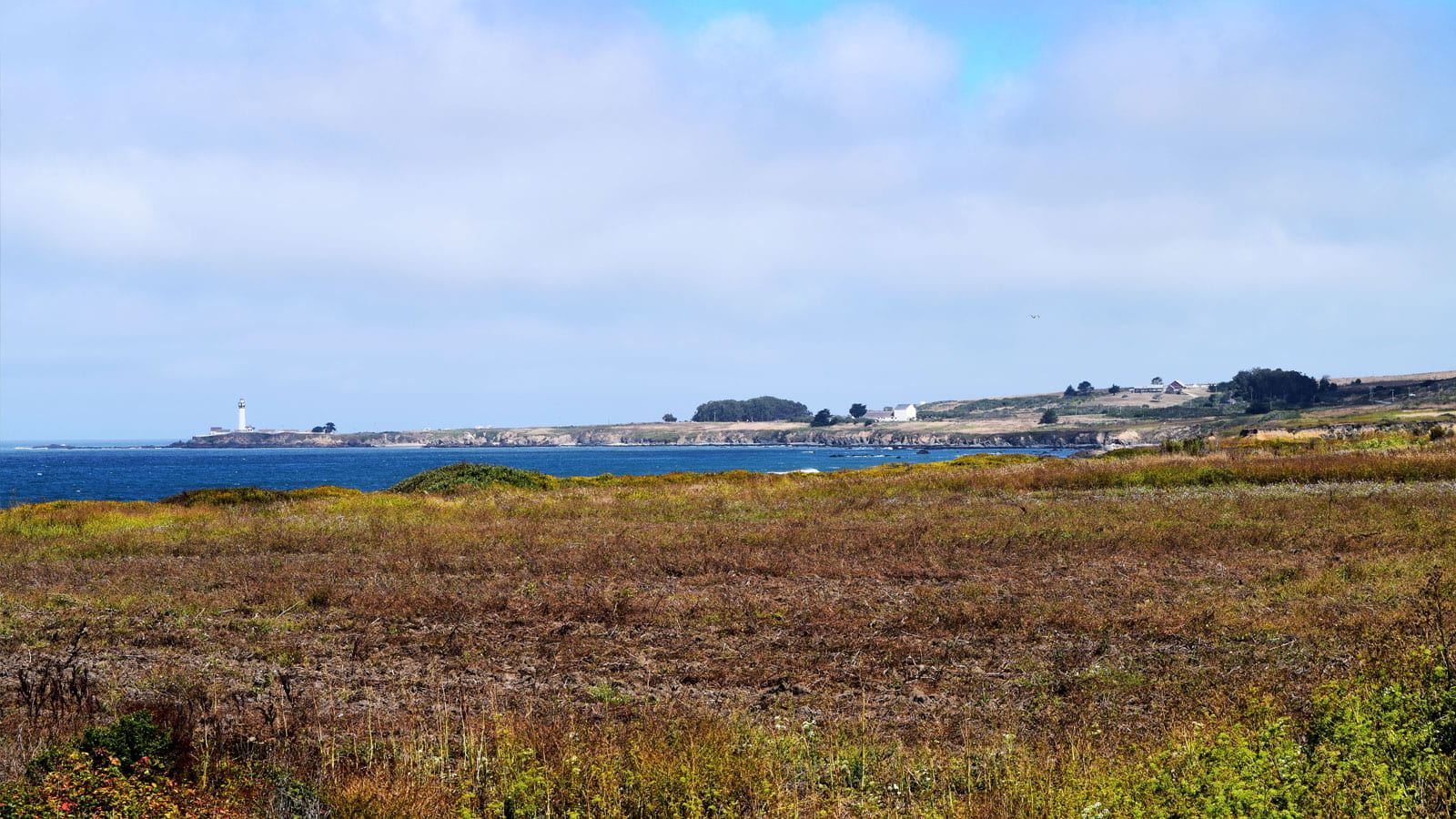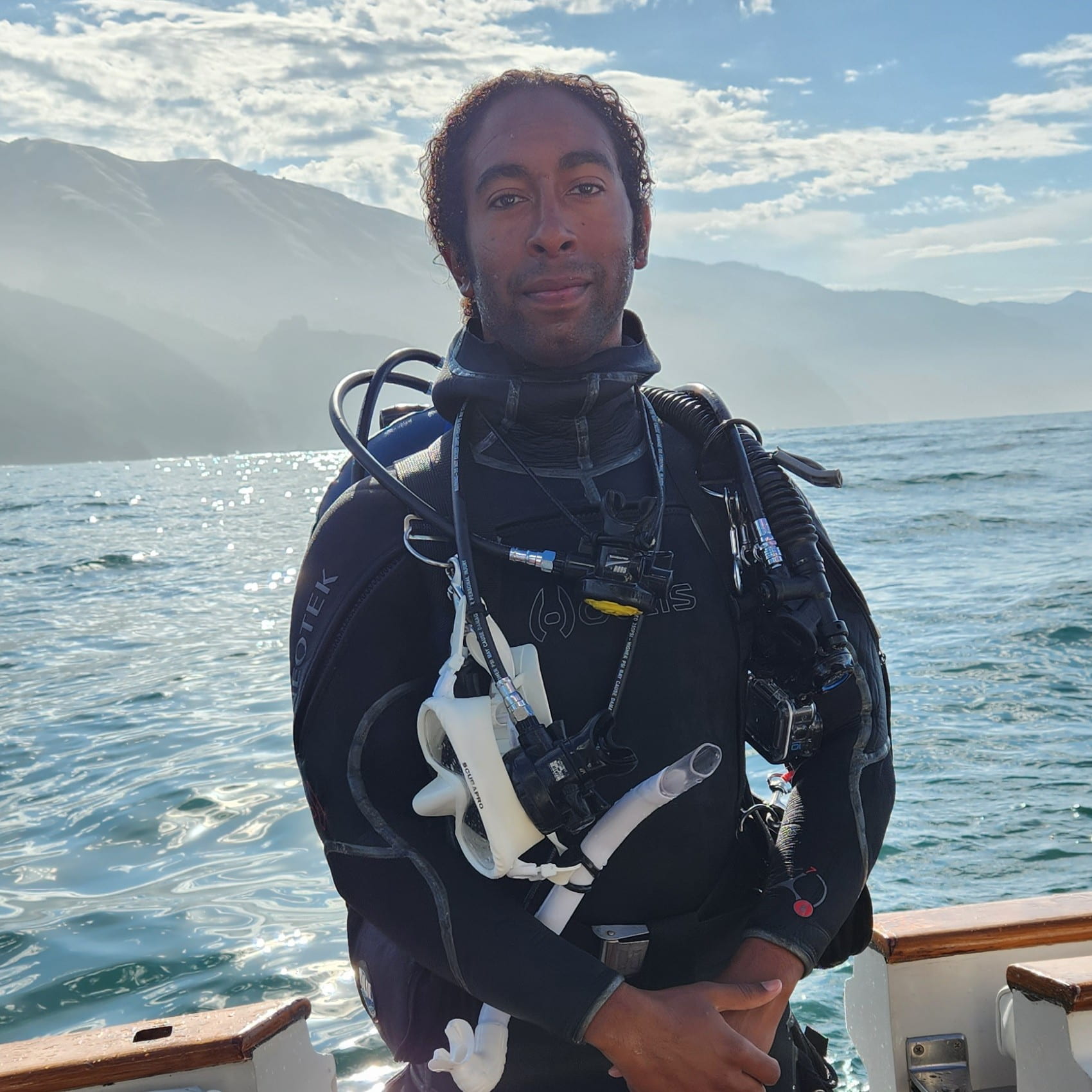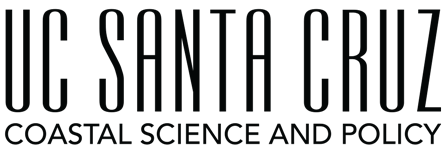Ph.D. DE COHORT
In Fall 2019 the Coastal Science and Policy Program began accepting PhD designated emphasis (DE) students. DE coursework and requirements emphasizes interdisciplinary scholarship, project-based study, and developing practical solutions to real-world problems.
Meet our DE students below:
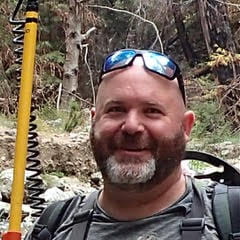
Faculty Advisor:
Eric Palkovacs
Morgan Abbott
Sonoma County, California
Morgan Abbott is a Ph.D. student at UCSC in the Ecology and Evolutionary Biology department’s Freshwater and Coastal Ecology Lab, where his research focuses on the impacts of wildfire on aquatic ecosystems. Morgan has been working on wildfire driven ecological studies since 2017 when his community experienced the most destructive wildfire in California history at that time. From studying how populations of Pacific giant salamanders (Dicamptodon ensatus) are impacted by high intensity burns to conducting paired watershed experiments analyzing pre- and post-burn stream flow regimes, he’s seen fire regimes are integral for coastal California ecosystems. Currently, Morgan is studying the effects of the 2020 central California coast wildfires on the behavior, olfaction, and gene expression of threatened native steelhead (Oncorhynchus mykiss). His goal is to produce research to inform equitable policy decisions that support our diverse coastal communities.
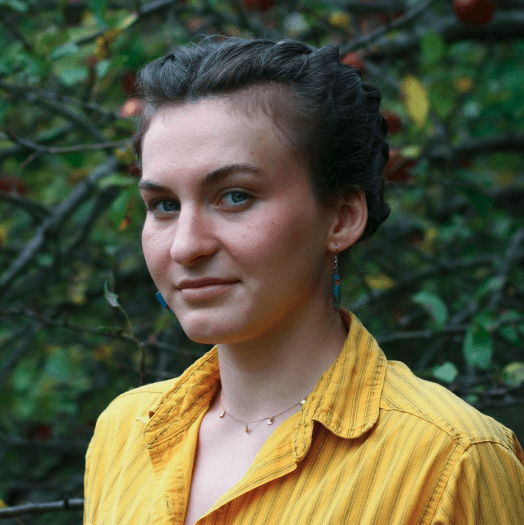
Faculty Advisor:
Don Croll
Aspen Ellis
Aspen Ellis is a PhD student focusing on seabird conservation in the UCSC Ecology & Evolutionary Biology Department under the advisement of Dr. Donald Croll and Dr. Bernie Tershy. Aspen has been working on avian research and management projects for over 10 years and holds a B.S. from the University of Michigan. Her work in the department focuses on assessing the impacts of offshore wind energy development on seabirds in the California Current Ecosystem and evaluating the efficacy of feasible mitigation measures. Utilization of renewable energy resources is essential to reduce the severity of climate change, but construction of infrastructure in marine environments may pose new risks for marine wildlife. Through her research, Aspen’s goal is to facilitate renewable energy development while ensuring that seabird populations aren’t jeopardized. As a NOAA Dr. Nancy Foster Scholar, she will work closely with the National Marine Sanctuary System and the USFWS throughout her Ph.D.
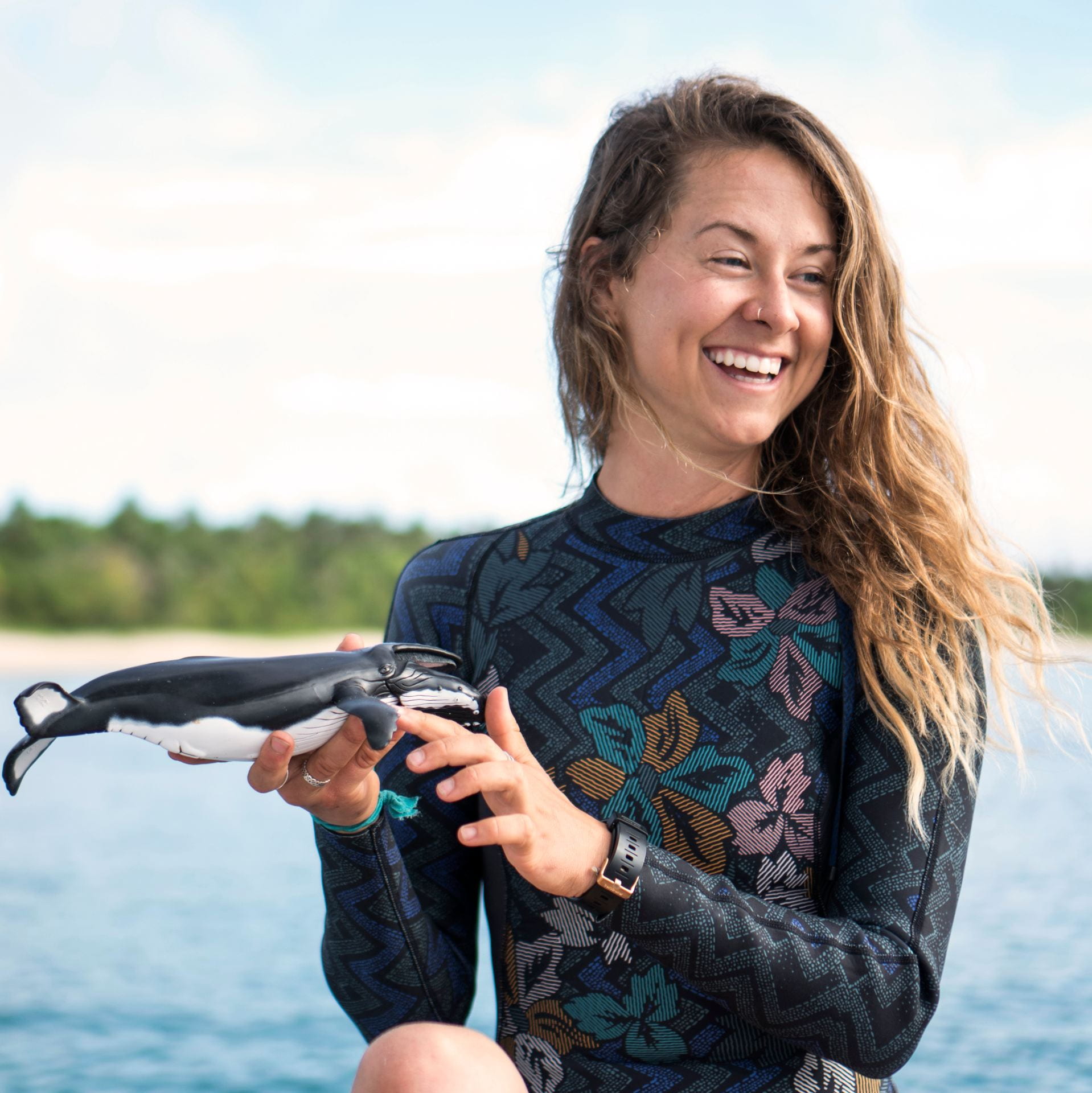
Faculty Advisor:
Ari Friedlaender
Lauren Fritz
Coeur d’Alene, Idaho
Lauren is a P.h.D. student in the Ocean Sciences department working in the Biotelemetry and Behavioral Ecology Lab. Her research focuses on understanding the behavioral and physiological responses of humpback whales and other cetaceans to anthropogenic disturbance, mainly whale watch tourism in the Antarctic. Prior to joining the lab, Lauren worked as a whale watch and ecotourism guide in Maui, Hawaii; the San Juan Islands, Washington; Kaikoura, New Zealand; Hervey Bay, Australia; and the Kingdom of Tonga. She became familiar with a wide variety of ecotourism operations and saw a need for a more dynamic approach to regulating human interactions with marine wildlife. In addition, she hopes to better quantify the population cost of disturbance for the various whale populations she works with. She is excited to be a part of the Coastal Science and Policy department and help find integrated solutions for the many challenges facing the relationships between humans and cetaceans. For her CSP dissertation chapter, she hopes to work with the International Association of Antarctic Tour Operators to facilitate an open framework of communication between tour operators, scientists, and marine policymakers.
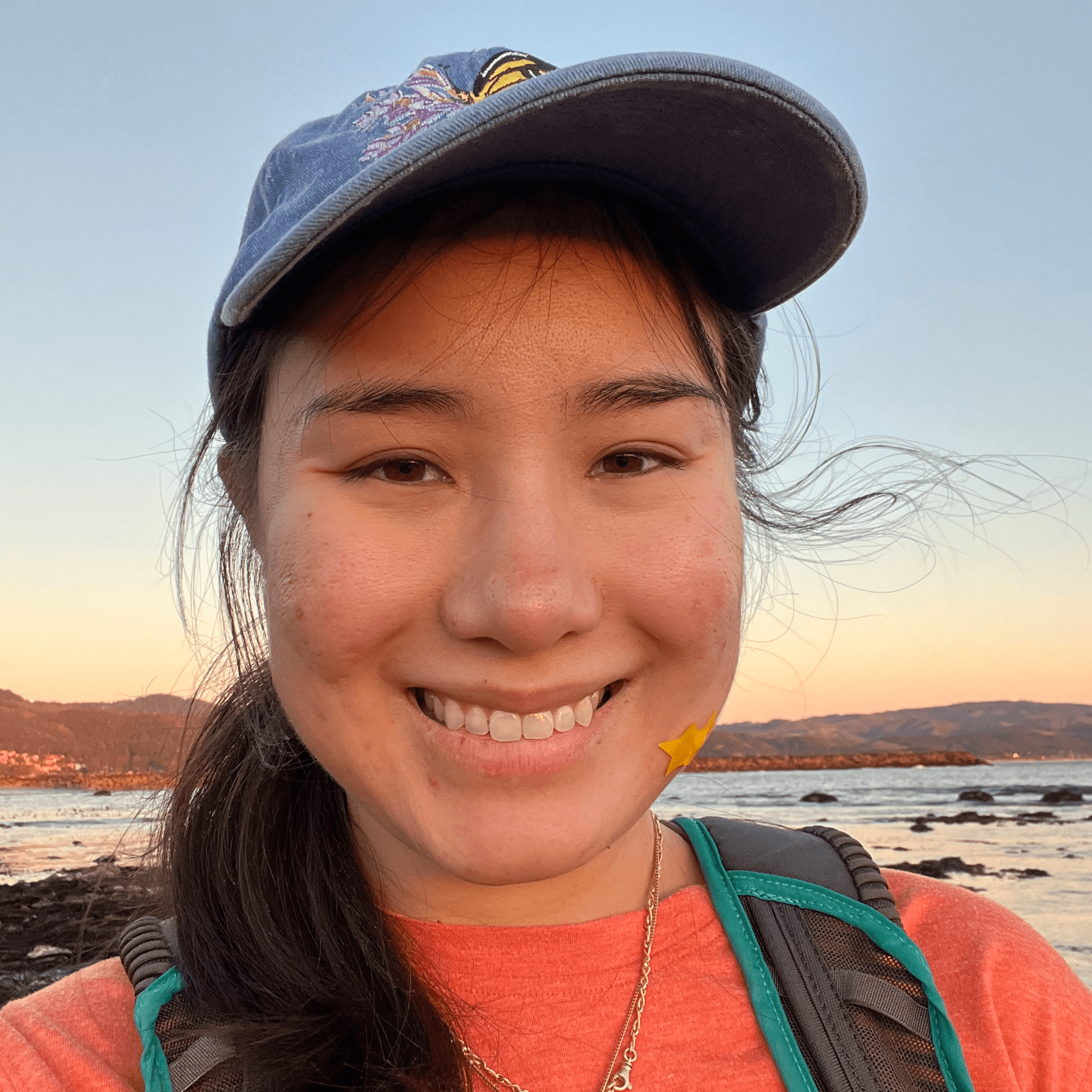
Faculty Advisors
Dr. Katherine Seto
Dr. Elliott Hazen
Emma Gee
Emma Gee is a Ph.D. student in Environmental Studies. Her research examines fishing on the high seas and its subsequent ecological effects through the lenses of environmental justice and neocoloniality. Emma brings her research closer to home by investigating relationships between Asian-Americans and marine conservation. Prior to her doctoral studies, Emma worked as a fishing data analyst for the Washington, D.C.-based nonprofit Oceana. She holds a B.S. in Environmental Systems Engineering and an M.S. in Earth Systems from Stanford University.
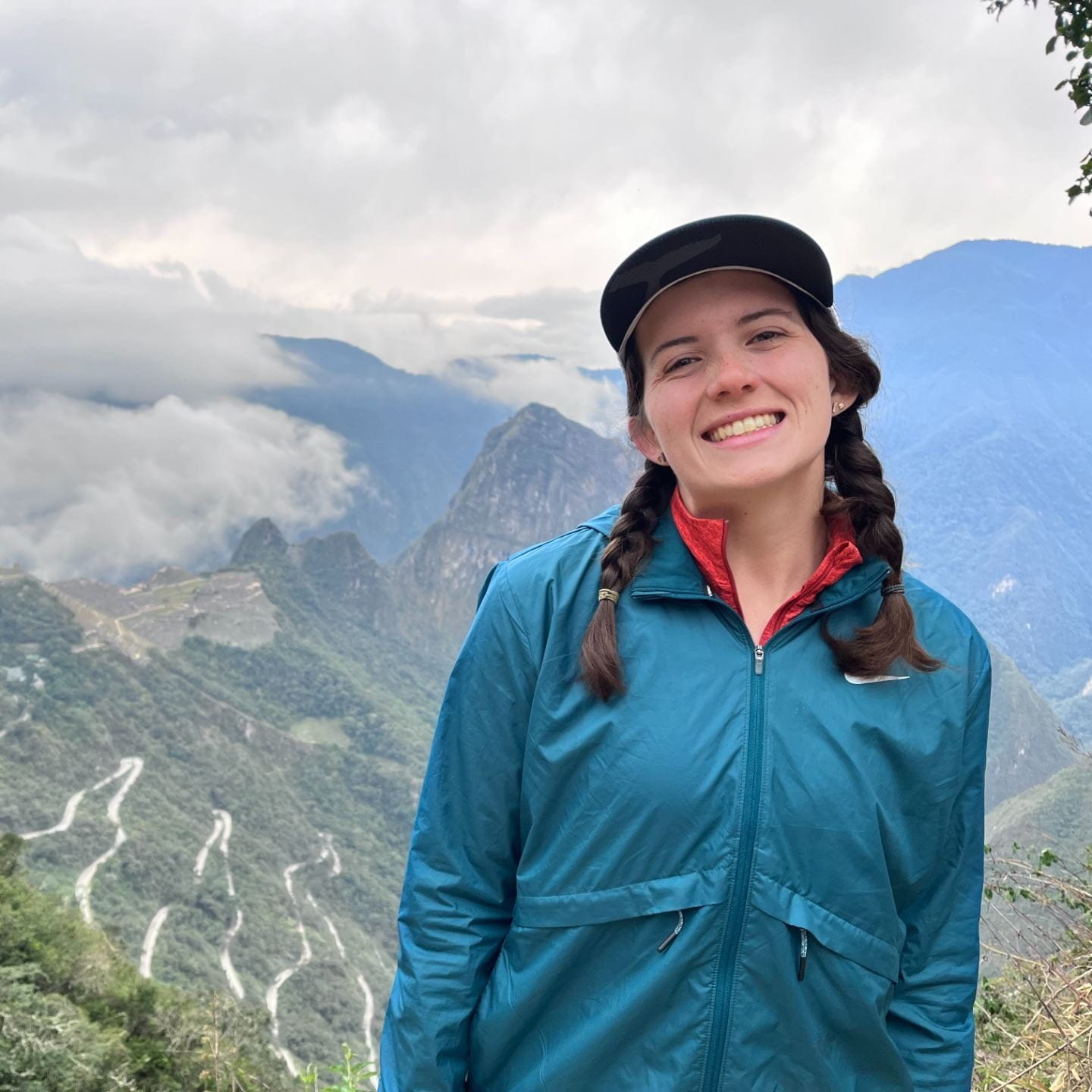
Faculty Advisor:
Terrie Williams
DE Faculty Advisor:
Don Croll
Partner Organization Advisor:
Elliott Hazen (NOAA)
Emily Nazario
City of Orange, California
Emily Nazario is a PhD student advised by Dr. Terrie Williams in the Ecology and Evolutionary Biology department at UCSC. She is interested in the physiology and conservation of marine predators and how the two intersect. She is researching a range of approaches that can be used to inform conservation, including how dolphins and beluga whales manage their metabolic gasses and their influence on dive recovery, how the metabolic needs of juvenile mako sharks may be influencing their habitat suitability in light of climate change induced hypoxia, and the habitat suitability of Hawaiian monk seals across the main Hawaiian Islands. Emily is passionate about the intersection of physiology, tools that can inform targeted conservation of marine predators, and their application to management approaches such as dynamic ocean management. Emily received a B.S. in Ecology and Evolutionary Biology from UCSC.
Emily's CSP DE chapter investigates the habitat suitability of juvenile mako sharks in the Southern California Bight Ecoregion. This region is an important nursery area for the North Pacific mako shark population, though this region is expected to be largely impacted by climate change-induced hypoxia and warming temperatures. Additionally, juvenile mako sharks make up most of the mako shark landings in this area. Thus, understanding how this nursery area may geographically shift and where future spatial protections should be placed will be a critical component of the conservation efforts for this species. This study will pair habitat models and the metabolic demands of mako sharks to map their habitat suitability in the region. This mechanistically informed habitat model will also be used to project how their habitat suitability may change when considering projected environmental conditions. The habitat suitability maps can then identify critical areas for spatial management and where the risk of overfishing may be the highest.

Faculty Advisor:
Katherine Seto
Crissy Pickett
Crissy has always felt at home on the coast, in a garden, or in a classroom. She attended UC Berkeley where she received a B.S. in Environmental Science, Policy, and Management. She also received a minor in Food Systems and a concentration in the Energy and Resources Group through her senior thesis on Community Choice Aggregation. After college she worked on youth environmental education, coastal planning for regional government, non profit coastal consulting, and coastal sediment research for UC Irvine. She is now a Ph.D. candidate in the Environmental Studies and Coastal Science and Policy departments at UC Santa Cruz. Her research addresses sea level rise, coastal adaptation, and social inequalities in exposure to environmental hazards.
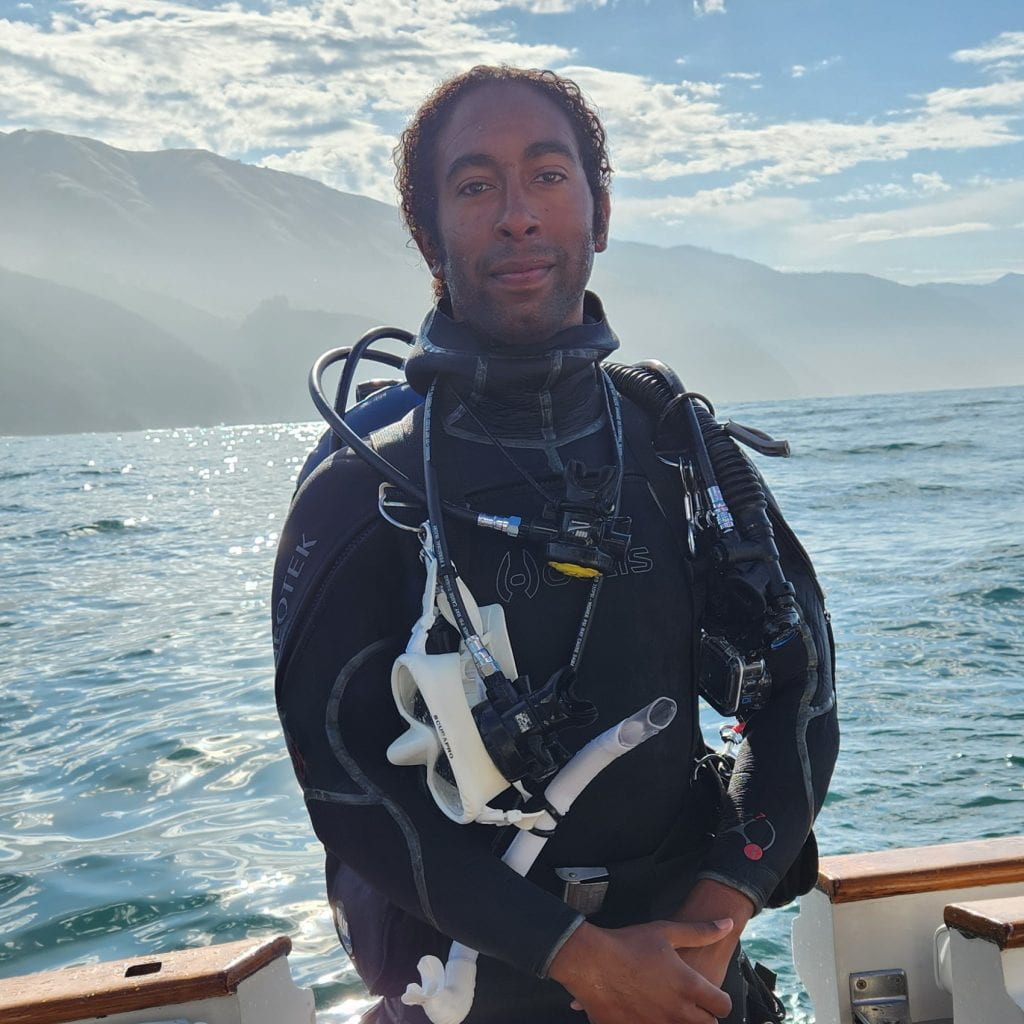
Faculty Advisor:
Jerome Fletcher
CSP DE Advisor:
Mark Carr
Maxwell Seale
Maxwell is a PhD Student in the Department of Ocean Sciences and is advised by Dr. Jerome Flechter. His research focuses on implementing numerical models to study anchovy responses to shifts in prey availability and habitat conditions, aiding marine sanctuary managers in predicting and mitigating future risks to marine megafauna like whales, tuna, and seabirds. In collaboration with NOAA Sanctuaries, SWFSC, and MBARI, these contributions will be integral to the broader modeling efforts and management of the California Current Large Marine Ecosystem. Before beginning at UCSC, Maxwell led a subtidal long-term monitoring program from San Francisco to Point Conception, assessing changes in coastal marine ecosystems for the Reef Check Foundation using scientific diving methods. At Reef Check, he also coordinated a series of kelp forest restoration efforts across the Central Coast Region, ranging from experimental projects to acre-scale operations. Maxwell’s technical experience also includes applications in marine animal telemetry, sonar-based ropeless fishing equipment, and underwater acoustics navigation.
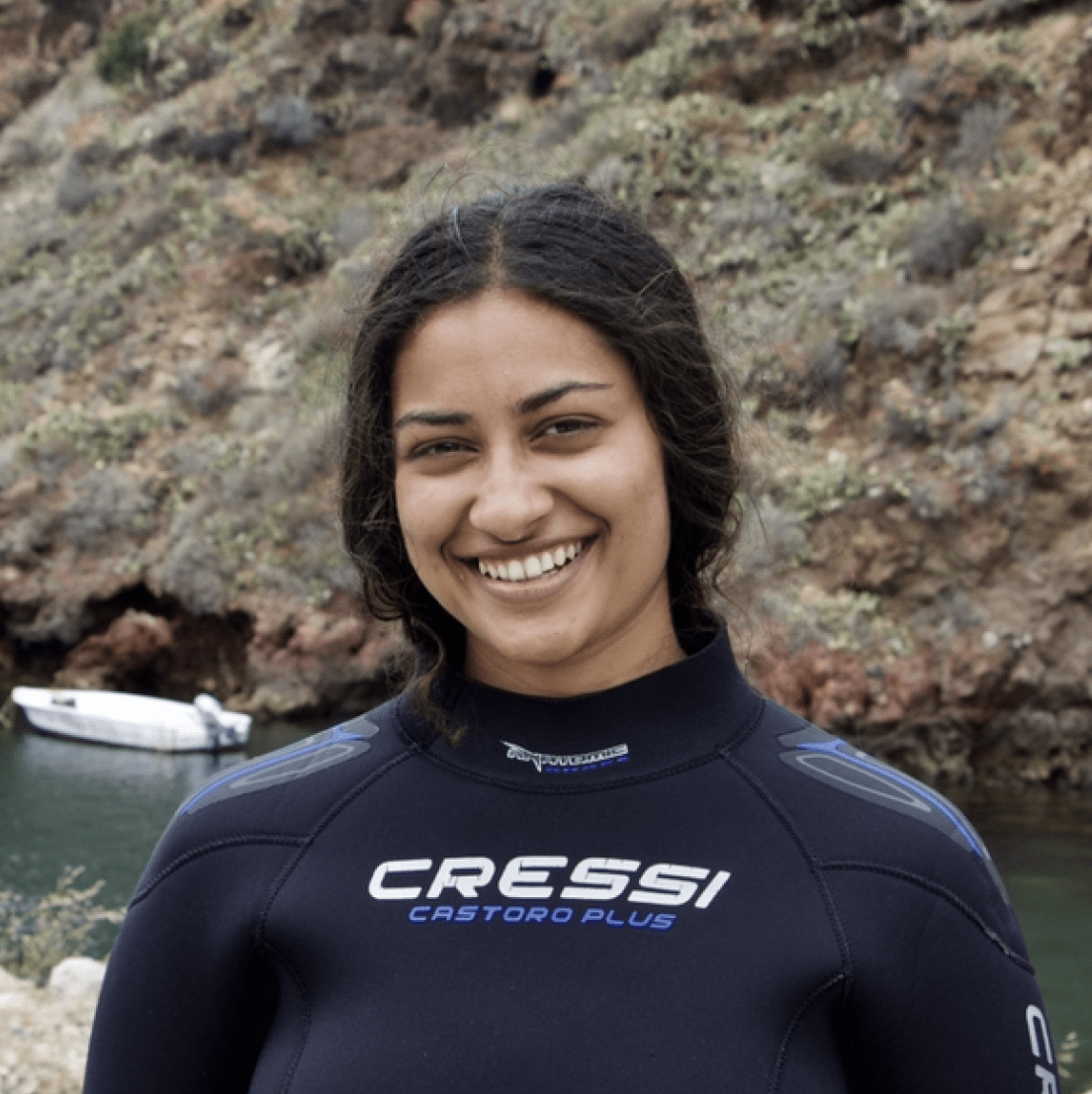
Faculty Advisor:
Kristy Kroeker
Nikita Sridhar
Nikita Sridhar is a PhD student advised by Dr. Kristy Kroeker in the Ecology and Evolutionary Biology department at UCSC. She is interested in ways local and global stressors interact and influence the persistence of kelp forest ecosystems, with specific emphasis on anthropogenic impacts on keystone species. She is researching the roles of urchin predators, like sunflower sea stars and otters, on kelp forest dynamics to better understand transitions between kelp forest and urchin barren ecosystem states with hopes to inform restoration efforts. Nikita is passionate working at the intersection of research, management, policy, and public environmental literacy. Nikita received a B.S. in Marine Biology with a minor in Geospatial Information Systems and Technology from UCLA.
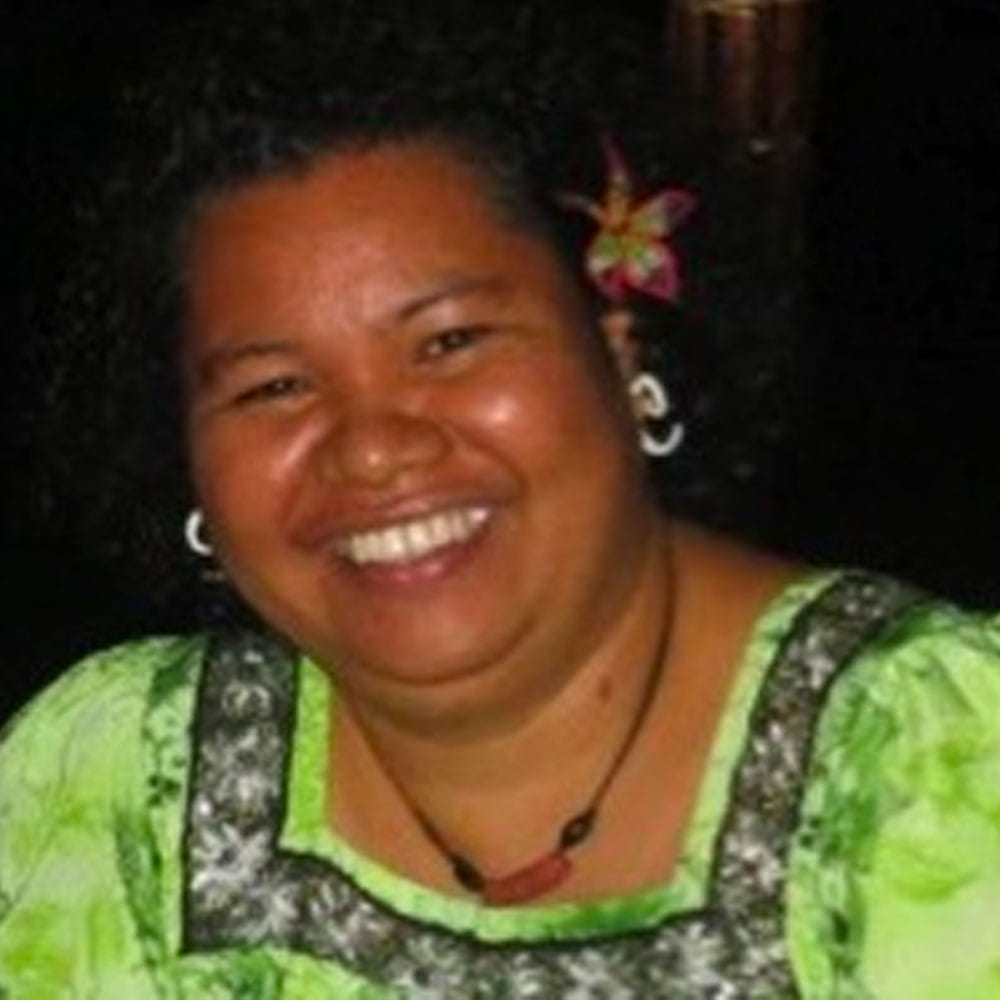
Faculty Advisor:
Anne Kapuscinski
Alissa Takesy
Federated States of Micronesia
Alissa comes from a diverse Micronesian background due to her extensive familial ties throughout this Pacific islands’ sub-region. This meant she grew up in a multilingual household which enabled her to work in the public, civil society, education, and retail sectors for the past twenty years. Through her professional background and interest in biodiversity, this supplied her with the skills in her last assignment with the Federated States of Micronesia (FSM) National Government. She oversaw the FSM’s complex institutional arrangement of the agriculture, forestry, biosecurity, coastal fisheries and tourism sectors with its four States of Chuuk, Kosrae, Pohnpei, and Yap. FSM, like some of its fellow Pacific Island Countries, is challenged by a limited human capacity to manage its large Exclusive Economic Zone (approximately 3 million square kilometer), consequently the need for agencies and partners to cooperate for a collective outcome. Through CSP, Alissa will try to narrow her research focus on the knowledge gaps between science and policy in the Pacific or Micronesian context.
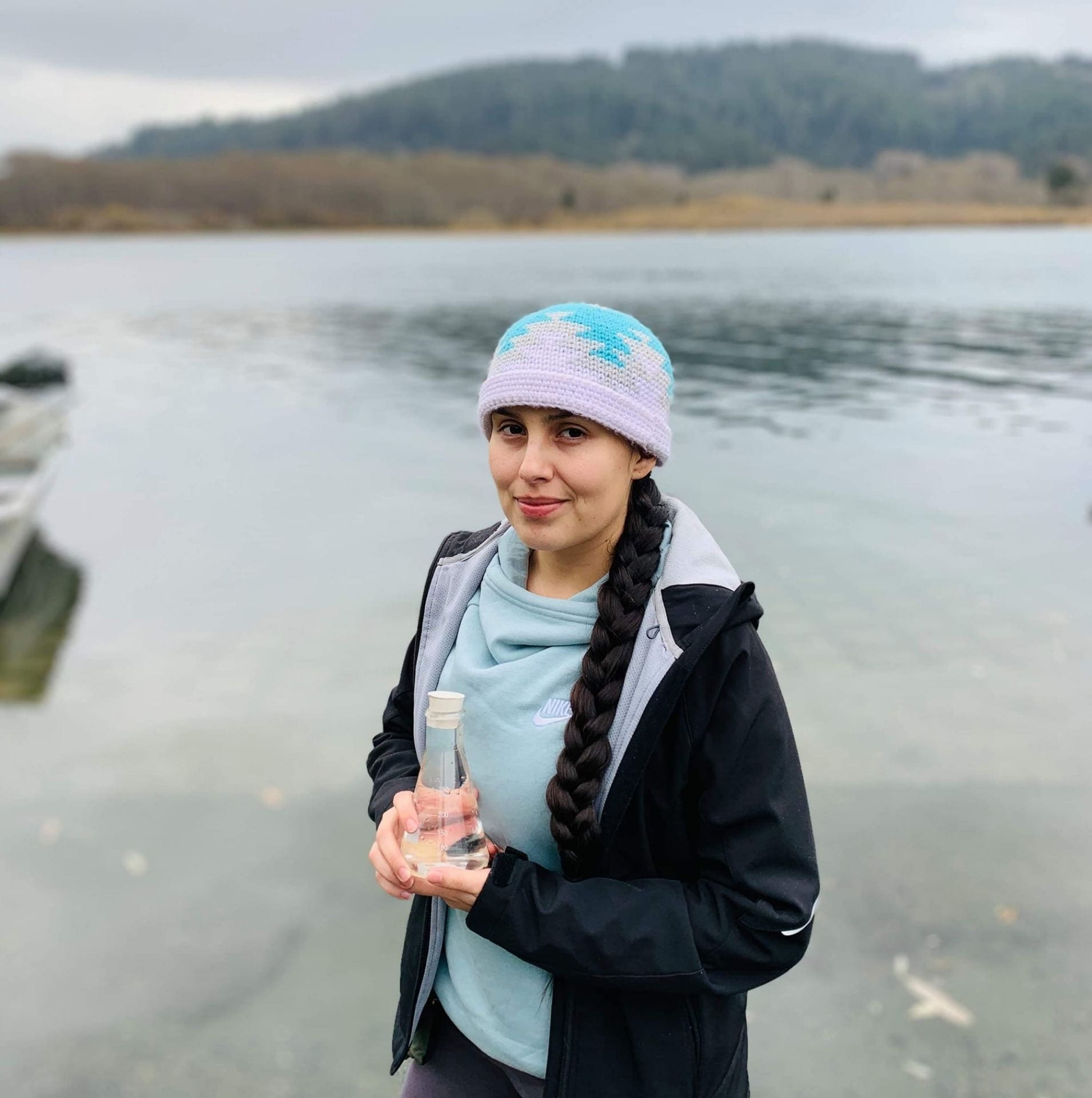
Sikina Jinnah
DE Faculty Advisor:
Erika Zavaleta
Brook Thompson
Northern California
Brook Thompson (She/Her/They) is a Yurok and Karuk Native from Northern California. Growing up she lived and fished on the same land that her ancestors have been on for over 12,000 years. Brook fights for water and Native American rights through speaking to groups and frontline activism. She has been an intern for the City of Portland’s Bureau of Environmental Services, the Senate Committee on Indian Affairs in D.C., the California State Water Resource Control Board Office of Information Management, Save California Salmon, and currently works as an engineer for the Yurok Tribe’s fisheries program. In 2017 Brook was awarded the American Indian Graduate Center’s Undergraduate student of the year and in 2020 she won Unity’s 25 Under 25 award. Recently she was accepted into the 5th Cohort of the Water Solution Network. Brook is a graduate of Portland State University with a degree in Civil Engineering and a minor in Political Science and a MS in environmental engineering at Stanford University and is now attending UC Santa Cruz for a Ph.D. in Environmental Science. Thompson’s goal is to bring together water rights and Native American knowledge through engineering, public policy, and social action.
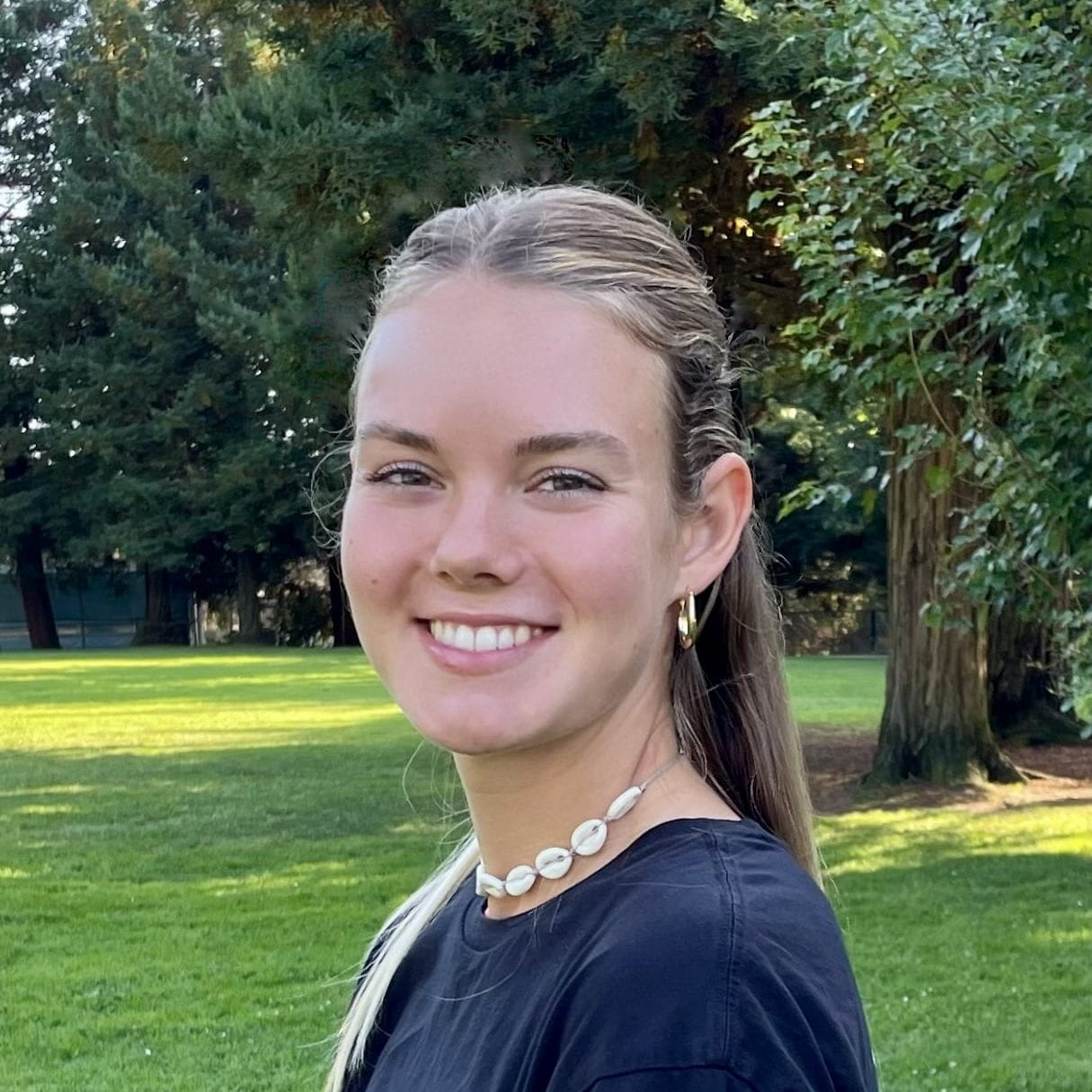
Faculty Advisors:
David J. Gordon
Sikina Jinnah
Sophie Trobitzsch
Germany
Sophie is a Ph.D. student in the Politics Department, and her research focuses on ocean governance and climate change. Specifically, Sophie studies how international legislation such as UNCLOS defines rights and duties regarding marine territory and its protection and why it is often not ratified or adhered to. Sophie was born in Germany and graduated from the United World College in Freiburg, Germany. She received her B.A. in International Political Economy from The College of Idaho, where she also completed minors in Environmental Studies and Philosophy. Sophie has always felt passionate about environmental protection and hopes her work will contribute to a more sustainable future. After moving to Santa Cruz, she discovered her passion for ocean conservation and coastal policy. In her free time, Sophie likes to surf, sail, and explore the beautiful mountains surrounding Santa Cruz.
